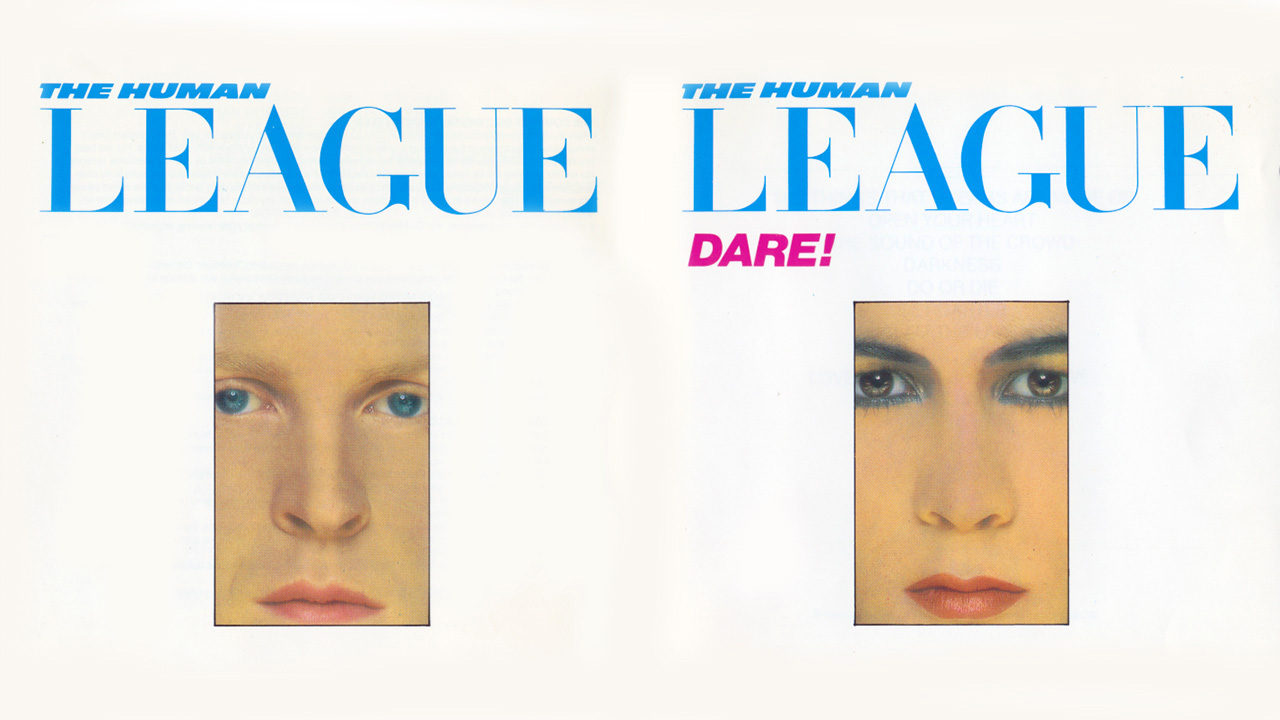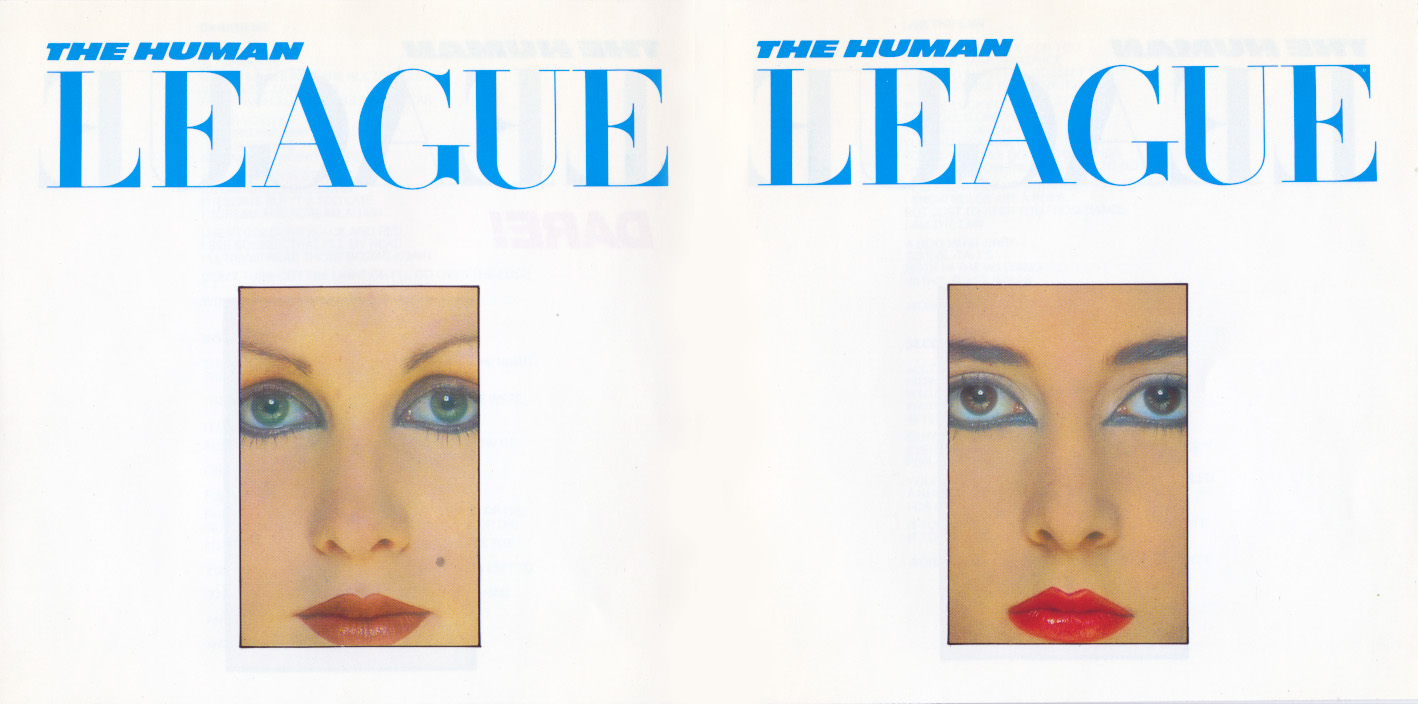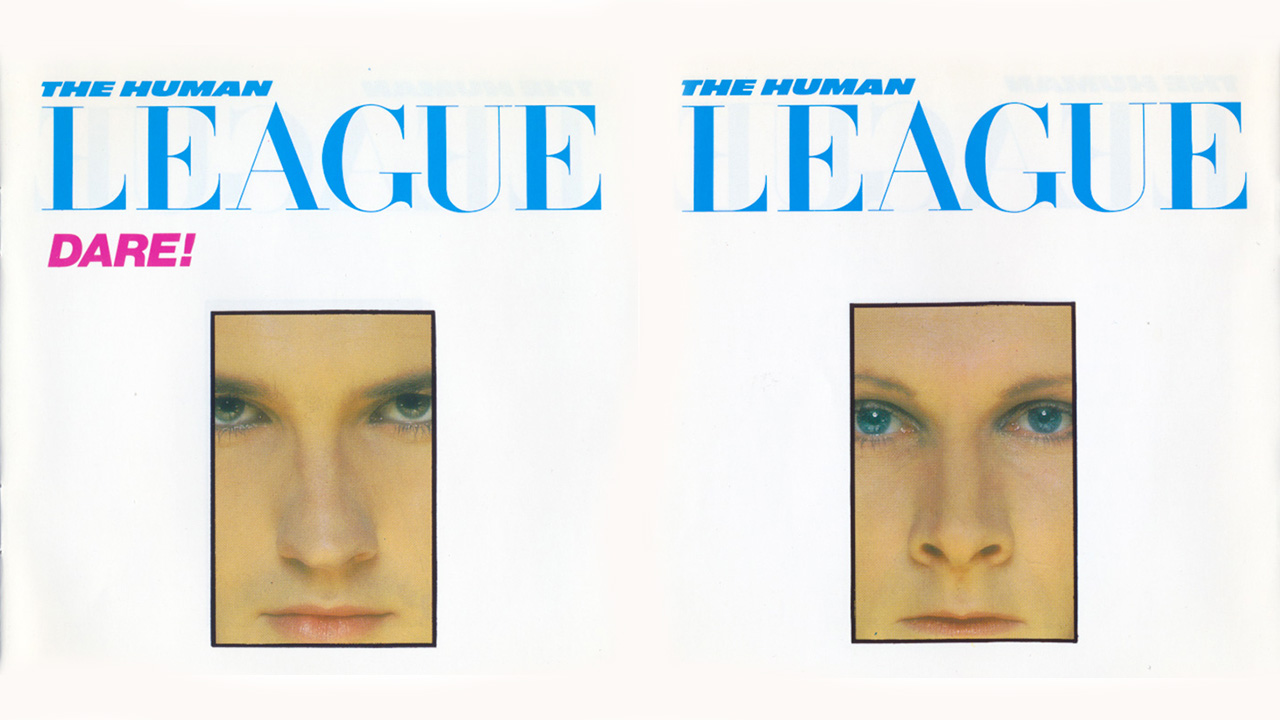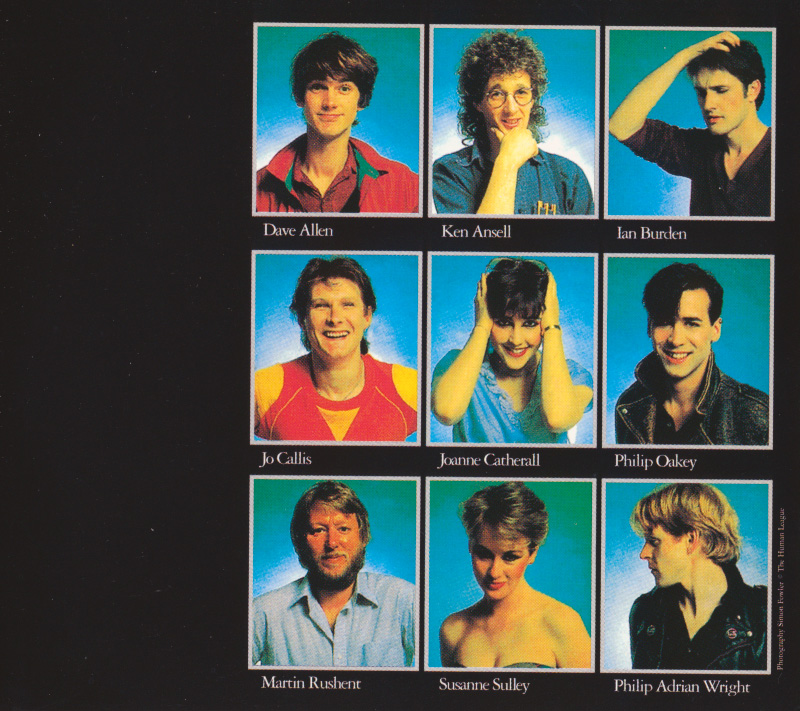
A new instalment of Soundtrack Of Our Lives on the occasion of another anniversary. Forty years since the release of an album that definitively changed the electronic music scene at the time of its release and whose influence has been vast, prolonged and still present in many artists of our days.
If Abba came to create the best compositions in the history of Pop, probably the protagonists of this story came to do the same with electronic Pop. Ladies and gentlemen, today we are talking about The Human League‘s Dare.
In theory it is the band’s third album, but The Human League pre-Dare is completely different from the one created after certain sour events (which time has healed and closed wounds) occurred in October 1980. But let’s go back a little further.
This second and definitive version of The Human League revolves primarily around the figure of a vocalist named Philip Oakey, born on 2 October 1955 in Hinckley, Leicestershire. Because of his father’s job, the family moved from place to place during Phil’s childhood: Coventry, Leeds, Birmingham and finally landing in Sheffield at the age of fourteen. He left school at 18 and worked at various odd jobs: in a university bookshop and, from 1975, as a porter at Sheffield’s Thornbury Annex Hospital. It was in those days that Phil’s life changed for good.

Ian Craig Marsh and Martyn Ware form The Future with Adi Newton, but the group’s young life evolves into The Human League when Adi leaves to form Clock DVA and Martyn and Ian find themselves in need of a new vocalist. They talk to Glenn Gregory, but he is in London focusing on his career as a photographer and Philip is brought in. Martyn Ware goes to look for Oakey at his house, but when he doesn’t find him there, he leaves him a note on the door inviting him to join the band, which he joined in mid-1977. Although he had no previous musical experience (it is said that some time ago he had bought a saxophone, but gave up, as well as the idea of joining a band), he was well known on the Sheffield underground circuit for his peculiar dressing styles. Soon after, Philip Adrian Wright joined the band to take over the visual side of the group.
Two singles on Fast Product, the label of Bob Last, who became their manager, led to a signing with Virgin and the release of two albums in 1979 and 1980, Reproduction and Travelogue. These first two albums are dense, although Travelogue shows a slight commercial shift, as sales did not match the good reviews. Martyn and Philip clashed constantly, as both visions of the line to be followed by the band were far apart, and a dichotomy was created in the band, Phil and Adrian Wright on one side and Ian and Martyn on the other. Martyn Ware says that one day he arrived at the studio, where Bob Last and Philip Oakey were, and they told him that they were going to kick him out of the band… “but the band is mine, how could they kick me out”. The truth is that they did, and Oakey insisted on keeping the name of the band, which came at a cost to his pocket (as we have said before, time closed wounds and in 2008 both Heaven 17 and The Human League toured together on The Steel City Tour with other illustrious Sheffielders, ABC).

The explanation is simple. Oakey and Philip Adrian Wright were allowed to keep the name on the sole condition that with the name they took the rest with them, debts, commitments, Virgin Records contract, etc. First commitment to be fulfilled, a European tour, which meant that either the duo started to form a band or they risked bankruptcy and being sue from the promoters. Phil Oakey went to a nightclub in Sheffield city centre called The Crazy Daisy and there he saw two teenage girls dancing, inviting them to join the group. Phil was lucky that Susan Ann Sulley and Joanne Catherall were fans of The Human League and recognised him. And from that night to this day, Susan and Joanne continue to accompany Phil in The Human League.
First stumbling block, meeting the commitments of that European tour, and for this they include studio keyboardist Ian Burden. Secondly, Virgin want results and something to press to fulfil the contract, so Oakey and Wright return to Monumental Studios in Sheffield to start recording demos. They recorded the track Boys and Girls, which Virgin promptly released as a single in February 1981. Sulley and Catherall, appeared on the cover of the single but were not involved in the recording of the single. The sound of the two tracks was very similar to the group’s first two albums, and one can appreciate the limitations of Oakey and Wright as musicians in those days, where they lacked the skill of former members Marsh and Ware. Oakey realised that things had to change to improve musically and move in a more pop and commercial direction, which was his intention in causing Ware and Marsh to leave the band and take control of the group.
Oakey’s first move was to invite guitarist and keyboardist Ian Burden to join the band full time. As a trained musician, Burden was not only a far superior keyboard player to Oakey or Wright, but he also brought his songwriting skills to the group. Due to the rarefied atmosphere at Monumental Studios in Sheffield, which the Human League shared with Heaven 17 (i.e. Ware, Marsh and Glenn Gregory), the band moved to Genetic Sound Studios in Reading. The studios were owned by veteran producer Martin Rushent, a suggestion from Virgin Records that proved vital in establishing the sound of The Human League 2.0. Rushent was a veteran and battle-hardened (a decade of professional experience and among his clients were the likes of Stranglers, Buzzcocks, XTC… proven solvency at the mixing desk) but at the same time passionate about new technologies, and in his studio, they found the perfect ecosystem for their new sound and the right hands to define it.
And the first product hit the shops in April 1981. The Sound Of The Crowd is the first sonic artefact of this new era, in which the new credentials are presented. The change is remarkable, because even though it is slightly reminiscent of their previous period, Rushent’s work and Oakey’s new direction produce the expected result, the single just misses the UK Top 10, reaching position number 12.
Bob Last, who was still the band’s manager, felt that one more musician was still needed to complete the line-up, inviting The Rezillos guitarist Jo Callis to join the band, who soon discovered that he needed to start learning the keyboards. The next release is another classic, Love Action (I Believe In Love), which hits the shops on July 27th 1981, breaking straight through to number three in the UK charts. With Love Action the direction is unmistakable, electronic pop destined for the dancefloor and continuous play on all the music radio stations. The whole thing works perfectly, and they continue to record material at the Genetic with Martin Rushent.
Open Your Heart was the next single, re-entering the UK Top 10 (number 6) after its release on September 28th 1981, with the whole of the UK and many other countries already knowing who The Human League were and waiting for the album they had been talking about in the press and specialist media.
The name of the album was Dare and it was released on October 16th 1981. First, we will give the commercial data. Number one in the UK, where it stayed for four weeks, remaining 77 weeks in the British charts. Oakey had done it. He overcame adversity, debt, contracts from both promoters and record companies and succeeded. And not only did he succeed commercially; with his fellow bandmates he created an album that has left an indelible mark on the history of modern music.
But before we finish dissecting Dare apart song by song, one last note about the album’s singles release, anecdote included. Simon Draper was the guy without whom Richard Branson would not have created the empire that was Virgin. It was clear to Branson from the start that this was the guy with the musical acumen to build Virgin Records into one of the mainstays of seventies and eighties music. Responsible for many of its successes in the seventies, for bringing the first whiffs of Krautrock to the UK and riding the Punk wave, with the end of the decade Branson left Virgin Music entirely in the hands of the man who started in the label’s mail order service, Virgin Mail Order.
This introduction to explain that whoever was going to make the decision on the next single to be taken from Dare knew what he was doing.
Simon Draper saw what was happening with the album and it was clear to him. There had to be a fourth single. And it was clear to him that that single had to be Don’t You Want Me, to which Oakey was totally opposed because he thought that this track was the weakest of all the songs on the album and for him it was almost a filler. Fortunately, Draper’s unbeatable commercial criteria and keen sense of smell won out over Oakey’s stubbornness and on November 23rd 1981 Don’t You Want Me hit the shelves of UK record shops. Result. Five weeks at number one in the UK charts, during the Christmas period, and the song played practically all over the world, supported by a very expensive (for the time) video clip made by Irish filmmaker Steve Barron, guilty, to name one of his crimes, of the video clip for Michael Jackson’s Billie Jean (as well as others by A-Ha, Dire Straits, Tears For Fears, etc, etc.).
Over a million and a half copies sold in the UK alone, making it one of the top 25 best-selling singles in UK history. And Phil didn’t want to release it as a single.
The album. Dare opened with The Things That Dreams Are Made Of, a tribute to the pleasures that life had to offer mortals, unpacked in Wright’s lyrics, which spoke of the simple necessities of happiness, friends, travel, money to spend and love. Then Philip takes over as lyricist on Open Your Heart, one of the advance singles and one of the favourite songs of this writer. Philip, as on many other occasions, revolves the theme of his lyrics around human relationships, and so he does in Open Your Heart, which relates the pain produced by infidelity. Musically speaking, the first two tracks on the album are pure new sound, none of the old Human League. The third track is the first single to come out of the Genetic Sound sessions, The Sound Of The Crowd, pure forerunner of so many Electro tracks we’ve heard years later.
Then comes Darkness, a dense lyric from Philip Adrian Wright describing a sleepless period after reading a horror book, with sounds that on this occasion might be reminiscent of those bygone days of the first two albums with Ware and Marsh. Do Or Die follows, fast-paced, up-tempo percussive and highly danceable, with the chorus of female vocals taking centre stage. Phil’s lyrics, again referring to heartbreak and relationship problems. Get Carter is the next cut, a short instrumental that is a stripped-down version of a track from the soundtrack of the film of the same name, written by British jazz pianist and soundtrack composer Roy Budd. On the original vinyl edition, Get Carter opened the B-side, followed by another cut, I Am The Law, with direct inspiration from the comic book character Judge Dredd. The lyrics are by Phil Oakey, who took as another source of inspiration an experience he had while working as a hospital porter. Wright has commented on occasion that it was the first song he wrote after Ware and Marsh left the band, and it is something that is noticeable as soon as you listen to it, as it is dark and minimalist like many of the songs from their previous period.
From there, the final stretch of the album is simply glorious. Opening the final tercet arrives Seconds, perhaps one of the most heart breaking chronicles of the J.F. Kennedy assassination:
“All day
Hiding from the sun
Waiting for the golden one
Waiting for your fame
After the parade has gone
Outside was a happy place
Every face had a smile like the golden face
For a second
Your knuckles white as your fingers curl
The shot that was heard around the world
For a second
It took seconds of your time to take his life
It took seconds”
Lyrics by Wright and Oakey with a tremendous, epic sonic landscape that make up one of the most memorable songs on the album. It is followed by one of the advance singles, another bouncy rhythm and groove anthem, written by Oakey and Burden. Love Action (I Believe In Love) is a kind of autobiographical tale from Phil again about love and heartbreak and human relationships:
“I’ve had my hard times (hard times!) in the past
I’ve been a husband and a lover too
I’ve laid alone and cried at night
Over what love made me do
And the loved ones who let me down
And couldn’t share my point of view
But this is Phil talking
I want to tell you
What I found to be true”
And to close Dare, the song which Oakey considered the weakest one, almost a filler, and that’s why he put it to close the album. He didn’t know what Don’t You Want Me was going to bring him… Pure perfect pop.
You could say that Abba’s Dancing Queen was the perfect Pop song, and Don’t You Want Me the perfect electronic Pop song.
Once again Phil Oakey talks about love and heartbreak, human relationships, disappointments and disillusionment. Here we can make a small digression, and compare two works to understand the reasons for a break-up that happened a year ago. While Oakey sings of love and personal relationships in the key of perfect pop, Ware and Marsh, together with Glenn Gregory, sing against savage capitalism, talking of silent revolutions and turning them into electronic Funk anthems. I think it’s the best explanation of why the original The Human League became Heaven 17 / B.E.F. and The Human League that Dare created.
Don’t You Want Me tells of a relationship between mentor and aspirant, between lovers, which is told in two parts, the first in male vocals by Phil and the second in female vocals by Susan Sulley. Each tells the story from their own point of view, all wrapped up in perfect chords of vibrant electronic pop and full of analogue colour that would mark a path followed by countless artists and bands.

Dare is a relentless orgy of synthesizers, drum machines and sequencers, and the group was tremendously fortunate to have Rushent’s input into their new sound. The producer was a tireless researcher of any new gadget that could be put into a studio that could produce sound. In a way, Rushent was to The Human League as Quincy Jones was to Michael Jackson’s career; we will never know if they would have succeeded in the way they did without his fundamental contribution to the creation of certain albums.
Dare has for years been named as one of the most influential albums of recent decades. Forty years later, it is still an absolute delight to listen to, and like other works of that calibre, it stands the test of time perfectly.

As an appendix, we should add that in July 1982, under the name of The League Unlimited Orchestra, Martin Rushent remixed eight tracks from Dare, which were released under the title Love And Dancing. Hard Times, Love Action (I Believe In Love), Don’t You Want Me, Things That Dreams Are Made Of, Do Or Die, Seconds, Open Your Heart and The Sound Of The Crowd. Delicious instrumental remixes that are included in the best edition of Dare on cd, the one released in 2002 on the occasion of the 21st anniversary of the original edition, with a remastering that even enhances that perfect work.